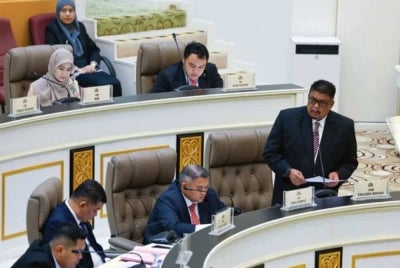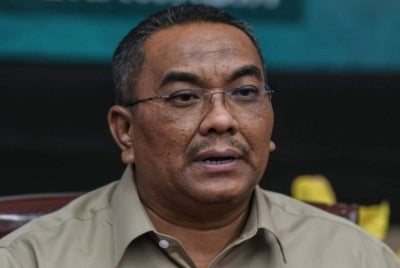BN secures Mahkota by-election victory with nearly 100 per cent vote transfer from PH - Analyst
Voter turnout in Mahkota by-election lower than expected, yet BN prevails

SHAH ALAM - Nearly 100 per cent transfer of votes from Pakatan Harapan (PH) to Barisan Nasional (BN) played a crucial role in securing BN's victory in the Mahkota by-election.
According to political analyst and Merdeka Centre for Opinion Research Programme Director Ibrahim Suffian, BN’s success in this by-election was largely due to its strong campaign machinery and a focused strategy aimed at addressing voter doubts about the party.
“The attention and presence of Umno leaders also played a key role in solidifying voter confidence.
"The support from the Chinese community, where PH had campaigned effectively, contributed significantly to the results.
“We saw an impressive transfer of votes from PH to BN—nearly 100 per cent compared to the results of the General Election (GE), which was crucial to their victory,” he told Sinar Daily when contacted.
Ibrahim also pointed out that voter turnout played a role in BN's victory in the Mahkota by-election.
“If turnout had been higher, I believe BN would have secured an even bigger majority.
Unfortunately, the non-Malay turnout was less than 50 per cent, but the encouraging part was that over 90 per cent of those who showed up supported BN.
“This victory was quite significant for BN in consolidating its influence in Johor.
"It provided some comfort that, despite the early challenges they faced, their supporters were returning to the fold and backing the party.
“It also showed that their alliance with PH had not eroded support among both BN members and the larger Malay community in Johor,” he added.
On a related matter, Ibrahim claimed that BN's victory in the Mahkota by-election was expected.
“We had conducted a survey there over a month ago and found that Malay support for BN was still intact and strong.
"From the beginning, it was clear that BN had a solid base in the constituency,” he added.
Agreeing with Ibrahim’s perspective, political analyst Associate Professor Dr Syaza Shukri stated that she had anticipated BN would retain the Mahkota seat.
“The turnout for the Mahkota by-election was pretty much what we expected for a by-election.
“It was not unusually high or low, but what it showed was that the people who came out to vote were quite committed to keeping BN in power,” she said.
Syaza believed that while BN's efforts were central to securing the victory, the involvement of PH also contributed significantly.
She said that PH’s presence mobilised Chinese voters, making a substantial impact and highlighting the strength of the unity coalition in effecting change across various communities.
“I think the win in Nenggiri (by-election) certainly provided momentum for BN, but the demographics in both constituencies are different, which also explains their victory in Mahkota.
“In Nenggiri, the Orang Asli population played a significant role, while in Mahkota, the mixed demographic, along with BN's historical presence, definitely helped,” she said.
Syaza pointed out that this victory was significant for BN in Johor, as it reinforced their influence in the state.
“People were curious to see if PN could make any inroads in the southern region, and based on this outcome, it seems that is not happening just yet,” she added.
BN's performance defied critics and expectations regarding the outcome of the Mahkota by-election.
Results from the BN camp indicated that their landslide victory included sweeping all 18 polling districts in Mahkota, along with early and postal votes.
In the previous General Election, PN had won three polling districts: Kampung Melayu I, Kampung Melayu II, and Sri Tengah in the Kluang parliament seat, along with early votes; however, BN comfortably captured those districts this time.
BN also managed to reverse PN's gains in Kampung Baru, a district that the Opposition coalition aimed to flip.
Ultimately, BN won by a fourfold majority despite a low voter turnout.
Download Sinar Daily application.Click Here!















